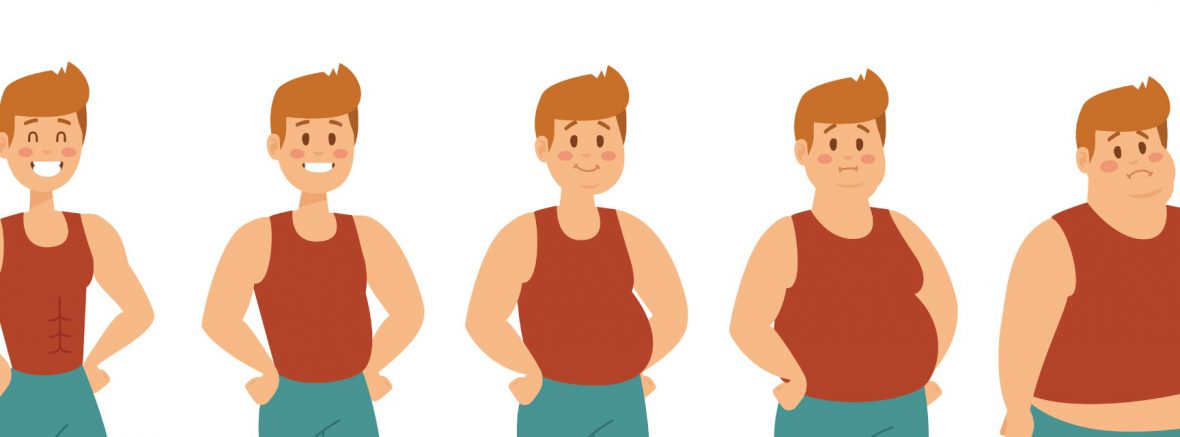If you are overweight or obese, losing weight is a good idea. Not so much because obesity itself is dangerous, but because losing as little as ten percent of body weight dramatically lowers the risk of many related health problems. In this article, we will focus on the effects of obesity on heart health and joint health.
Heart health and obesity
Obesity is linked to a trifecta of health issues that affect heart health. High cholesterol, high blood pressure, and impaired glucose tolerance create a perfect storm for the heart, and dramatically increases the risk of developing clogged arteries, stroke, and heart attack. Basically, an obese body has lots of glompy fat cells that are clogging up everything, including the function of cells that are supposed to move energy in and out of organs.
High cholesterol means that there are more lipid cells floating in the blood stream than there should be. At normal levels, lipids play an important part in many body functions, including digestion, brain health, and elasticity of tissue. But when the lipid level is much higher than usual, those extra lipids start sticking to stuff that they’re not supposed to. One theory of why plaque sticks to arteries, is that the lipids are sticky and get stuck on the walls of the arteries, making a rough surface, which then attracts the plaque. Although high cholesterol is not the only factor, adopting a heart healthy diet will lower cholesterol and decrease the risk of plaque forming in the arteries.
Obesity is often linked to a diet high in saturated fats. These dense, sticky fats are found in processed foods and meat products. A heart healthy diet will have very little or no processed foods and limited amounts of animal fat.
High blood pressure comes, in part, because there is so much more flesh to pump blood through. And fatty tissue is harder to oxygenate than lean tissue, which compounds the issue. When the heart has to pump harder, blood pressure rises in response, as the blood vessels try to help out by increasing the pressure. Think of it like this: the Great Alaskan Pipeline, crossing hundreds of miles, has to have a very high pressure going in to push all that oil through. A small pipeline that is only going a few miles won’t need nearly as high a pressure. In a similar way, the more body weight a person has, the more pressure it takes to get the blood pumped out to every little capillary in every organ.
Bottom line: being overweight or obese is hard on your heart and your blood vessels. Losing weight is a good plan.
Joint health and obesity
every pound of body weight puts stress on knees and lower back especially. Weight loss can greatly improve joint health, including arthritis, overuse injuries, and sciatica, and other painful degenerative disorders.
Extra body weight puts tremendous stress on hip and knee joints. For every 1 pound of weight lost, you decrease the stress on your knees by 4 pounds. This stress significantly contributes to arthritis and other degenerative diseases of the joints. Children and adolescents who are significantly overweight or obese have a much higher risk of developing arthritis early in life, because immature bones are softer and more easily damaged than mature joints.
Practical tips for preventing and reducing obesity
The good news is that young people who return to a normal weight after being obese have the same risk for high cholesterol and high blood pressure as those who were never overweight. In other words, childhood obesity doesn’t need to be a life sentence, and you can in fact do the equivalent of a factory reset on your body.
Here’s how:
- Eat real food. This means eating an apple instead of drinking apple juice or eating apple pie. Cooked, roasted or baked veggies instead of fries or chips. An honest-to-goodness steak instead of a fast food fake-burger. Just. Simple. Real. Food. Ditch the packages and preservatives. And to make it practical, do your cooking in batches and stick some in the fridge and the freezer for later. Stock up on veggie sticks and fresh fruit every week.
- Get moving. Spending time in the gym is great, but also encourage your kids to play outdoors, walk instead of ride, and make movement fun. Instead of focusing only on “exercise”, look for ways to add movement to everyday activities. Restrict video games to those that teach real skills and healthy habits, such as the ones on this site. Less time gaming means more time for active play and playground fun.
- Drink water. Put water bottles in school back packs. Keep a pitcher of water and fun colored cups in a spot where everyone can reach them. Teach toddlers to use the dispenser on the fridge door if you have one. The mess is worth it when they stay hydrated and learn healthy habits.
All of this works best when they see parent and other adults doing the same, which is a bonus because it means the whole family can get healthier together.


